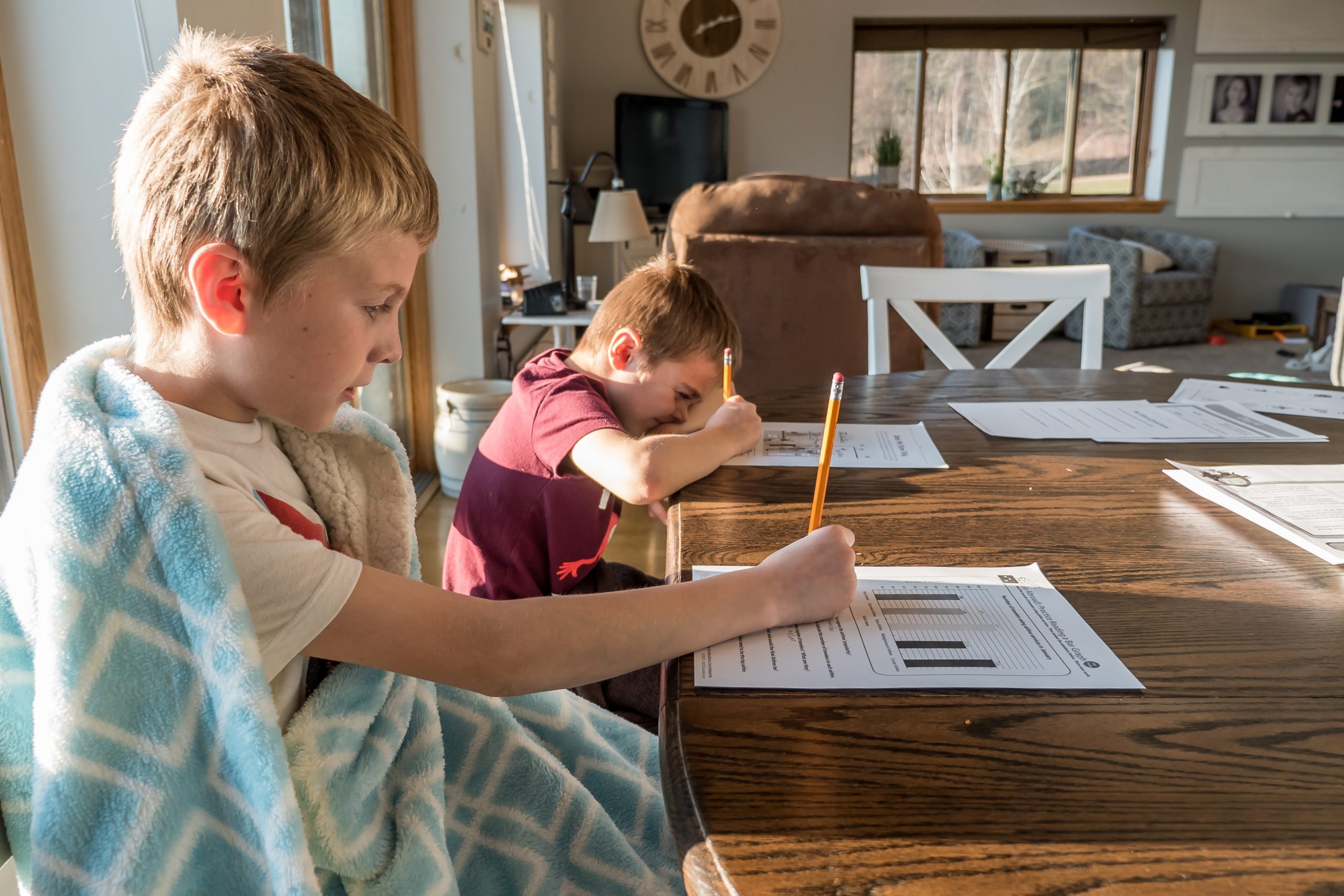
We are a reader-supported education publication. When you buy through links on our site, we may earn an affiliate commission to help us keep providing content.
Homeschooling is an alternative education system that allows parents to assume the responsibility of teaching their children. It’s quite different from a traditional school in many ways, some positive and some negative. If you’re considering making the switch, read up on the pros and cons of homeschooling so you can make an informed decision.
Pros of Homeschooling
Although homeschooling is unfamiliar territory for most families and might sound intimidating, it has many advantages over the traditional schooling system we grew up in. Here are the positive attributes of homeschooling.
1. Flexible Schedule
Homeschooling allows families to create a schedule tailored to their needs and interests. The standard August to June timeline and eight-hours-a-day schedule don’t apply. You can study any subjects you want, in whatever order you see fit. Other obligations like holidays and religious celebrations also don’t interfere with the schedule, and you can easily attend appointments and other obligations without throwing off your whole day.
2. More Free Time
A flexible schedule affords homeschool families more free time as well. With no strict routine, they can stop and take an extended break or vacation whenever they want. Also, since homeschooling is a more hands-on learning environment, students spend more time staying active than they would at a regular school.
3. Individualized Learning
An intriguing part about homeschooling’s flexibility is the individualization of each student’s curriculum. They can learn at their own pace, studying each topic until they absorb everything and are prepared to move to the next task. Traditional school moves at a fixed pace that students must keep up with, regardless of their learning style.
Suppose a child shows talent or passion for a specific subject early on. In that case, parents can choose to center the curriculum around that subject, giving the child the equivalent of a college major and some much-needed direction that sets them up for a potential career path.
4. More Family Time
Homeschooling allows parents and their children to spend much more time together, which (hopefully) increases their bonds and love for each other. Parents can identify learning habits and tendencies, allowing them to understand their children better and improve their teaching methods. Each party learns to appreciate the other party’s perspective. Traditional student-teacher relationships aren’t as intimate.
5. Greater College Readiness
With a more personalized curriculum and learning setting, homeschooled students are usually more prepared for college than their traditional school counterparts, especially if they have specialized in a subject since grade school. Homeschooled kids are also better equipped to handle the sudden freedom that college gives its students, since they spent most of their childhood learning in an independent setting.
6. Greater Accountability
As you might expect, children feel more inclined to complete their schoolwork when their parents assign it to them. Similarly, parents take the job of instructing their children more seriously than the average teacher. Parents and children care more about each other than teachers and children, and thus they’re more invested in the work. There’s greater accountability on both sides.
7. Less Exposure to COVID-19
This new advantage has influenced many families to make the switch to homeschooling. Children confined mainly to the house don’t get nearly as much exposure to COVID-19. They don’t have to wear masks all day or stand six feet apart from their friends.
There are also no sudden cancellations because of a breakout or 10-day quarantines that force the child to miss precious time in school. Everything can go on as planned. Overall, homeschooling provides a freer, more individualized learning setting for children, and parents can learn a lot from the experience as well.
Cons of Homeschooling
Although freedom and flexibility are great, those virtues come with additional responsibilities that some families simply cannot keep up with. Here are the main negative aspects of homeschooling.
1. Difficult Adjustment Period
The adjustment period can be stressful for families who transition from traditional school to homeschooling. Between creating a new schedule on the fly, deciding on the curriculum and making the child comfortable with the change, parents have a lot on their plate, in addition to their other daily responsibilities. The child might also have trouble adjusting, depending on how long they went to traditional school.
2. Lifestyle Changes
Both parents and children have to shift their priorities when switching to homeschooling. Parents have to make financial decisions and changes to their work schedules. Children don’t see their friends as much and have to find other ways to get sufficient interaction with them. That means they often have to sign up for more community activities, like youth groups and sports teams. That’s not necessarily bad, but it contributes to a busier lifestyle that looks quite different from the traditional school day.
3. Limited Resources
Although homeschool families have the freedom to decide which subjects to teach, they don’t have the same resources as a private or public school. The average house doesn’t have a chemistry lab with all the equipment or a shop for metal and woodworking. It doesn’t have an endless supply of paper, pens and other essential materials. Parents have to provide what resources they can to compensate for those missing parts.
4. Costs
Parents who homeschool their kids have to pay for all the tools and equipment necessary for their desired curriculum, which can eat a big hole in their pockets. There are plenty of free and affordable online resources, but everything falls on the parents’ shoulders in terms of hands-on learning. As a result, homeschooling usually costs more than traditional schooling, depending on the other options available.
5. Negative Stigma
The greatest fear people have about homeschooling is the negative stigma often associated with it. Since it’s not the modern or mainstream schooling method, many people view homeschool families as outcasts. They think the parents are overbearing and the children are socially isolated. Neither of those things is true, because parents still have to work and juggle their other responsibilities, and homeschooled children tend to get more involved in their communities, not less. Still, if you decide to make the switch, prepare to face ridicule from uninformed friends and family.
Make the Best Decision for Your Family
Homeschooling can be the perfect solution for some families and a nightmare for others. It all depends on your family dynamic, your other responsibilities, available resources and above all, your willingness to commit. It can be a daunting change, no matter how prepared you are. Evaluate your needs and weigh the pros and cons of homeschooling so you can make the best decision for your family.









